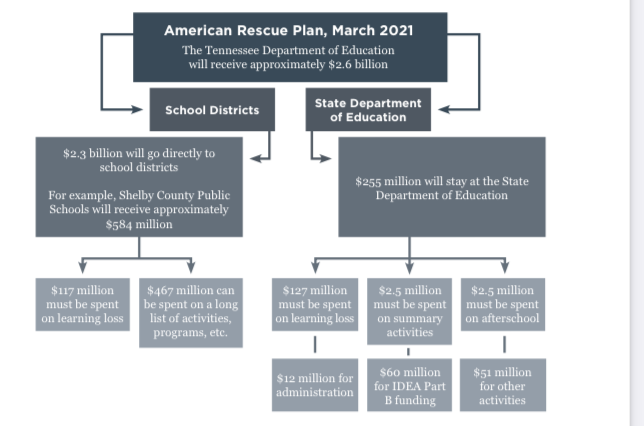Tennessee Gov. Bill Lee is no fan of public schools as he makes clear time and again. Whether it is advancing voucher schemes, creating charter school slush funds, or refusing to invest in our underfunded public schools, Lee is working tirelessly to undermine public education in our state.
Now, Lee is seeking to reward charter schools in Memphis and trap more schools in the failed Achievement School District.
Chalkbeat has more:
When Tennessee started taking over low-performing schools and matching most with charter operators in 2012, the plan was to return the schools to their home districts when they improved in an estimated five years.
Now Gov. Bill Lee is proposing other options for schools that have remained in the state’s turnaround program for nearly 10 years — most notably to let some of the higher-performing ones move from one state-run district to another.
Under legislation introduced this week, Lee proposed letting some charter schools bypass their original district when leaving Tennessee’s Achievement School District, also known as the ASD. Instead, they could apply to move directly to the state’s new charter school commission, which the governor helped to create.
It’s not like we couldn’t see this coming. In fact, warnings about Lee’s aggressive stance about privatization came early. In 2018, I noted:
Even though as early as 2016, Bill Lee was extolling the virtues of school voucher schemes and even though he’s a long-time supporter of Betsy DeVos’s pro-voucher Tennessee Federation for Children and even though he has appointed not one, but two voucher vultures to high level posts in his Administration, it is somehow treated as “news” that Bill Lee plans to move forward with a voucher scheme agenda in 2019.
In addition to the failure of the ASD to do, well, anything there’s also ample evidence of the failure of charter schools. Never mind the facts, though, Lee is committed to privatizing at all costs.
In 2019, I noted that charter schools in Tennessee and elsewhere are the “God That Failed” – taking money while yielding little in the way of results. Then, I suggested that in spite of all the evidence, Tennessee would continue down this path:
In other words, poverty matters. And, making the investments to combat it matters, too.
In other words, money matters. Districts with concentrated poverty face two challenges: Students with significant economic needs AND the inability of the district to generate the revenue necessary to adequately invest in schools.
But, by all means, let’s continue to worship at the feet of the Charter God hoping that our faith in “free markets” will be enough to move the needle for the kids who most need the opportunities provided by public education.
Plus, there was this great video demonstrating what must be the typical conversation around the Lee Administration’s privatization war room:
Remember when education advocates warned that Lee’s charter commission would grow, expand, and take over more schools and we were told that we were just being silly? Well, here’s how that seems to be turning out:
If the ASD bill passes, the commission’s role will expand, and its portfolio of charter schools is likely to grow. (The entity currently oversees three schools in Nashville and one in Memphis.) For now, the commission’s authority is limited as an appellate authorizer of charter organizations deemed to be high quality but rejected by local school boards.
What’s also interesting is the propensity of Tennessee policymakers to do a lot of talking that results in little action that helps students:
Tennessee leaders have been talking for years about how to exit ASD schools that haven’t met early improvement goals acknowledged now as too lofty. But because the transition involves everything from people and property to finances and governance, the state has found it almost as hard to transition schools out of the ASD as it was to take them over.
It’s as if there is no one leading anything other than the charge privatize public schools at all costs. ASD running into problems? Here’s an idea: Let’s let it continue to plague poor communities with little regard to actual results.
Will Gov. Lee creates confusion by attacking Confucius, our schools have real needs. Needs he seems content to ignore. This is not an accident, it’s an intentional act designed to decimate public schools. At this point, with a state experiencing a huge surplus (likely over $2 billion this year alone), refusing to fund public schools is a policy choice. It’s a choice that keeps being made over and over again. Sadly, it’s a choice that is made while some so-called public school supporters stand by and also indicate support for Lee.

For more on education politics and policy in Tennessee, follow @TNEdReport
Your support – $5 or more – makes publishing education news possible.








